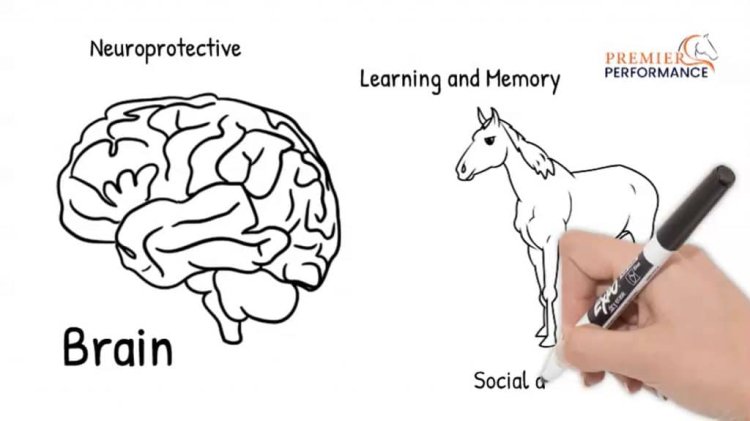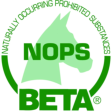in basket
The Role of Nitric Oxide in Horses

What is nitric oxide?
Nitric oxide (NO) is a compound produced in virtually every cell type in the body and is recognised as having several very important physiological roles in the body.
NO consists of nitrogen and oxygen, and is produced from L-arginine, which is an amino acid. L-arginine is converted to NO by a family of enzymes in the body, known as NO synthases. L-arginine is known as a semi-essential amino acid, in that the body normally produces it in adequate amounts, but supplementation may be required at times of poor nutrition, ill-health or exercise.
What does nitric oxide do in horses?
Nitric oxide is widely recognised as playing an important part in numerous physiological functions. NO acts as a powerful neurotransmitter, also known as a chemical messenger or signalling molecule, and is responsible for transmitting information between cells in the body. It is also produced by cells in the body to fight against disease.
Nitric oxide in the heart and lungs
Nitric oxide signals blood vessels to relax (dilate) and thus helps maintain circulation. Studies have also shown NO to be involved in the binding of oxygen to haemoglobin, thus supporting the delivery of oxygen and nutrients to tissues. Thus, it plays an important role in the cardiovascular system, where it is essential for good circulation and heart health. In fact, NO was first discovered as a signalling molecule in the cardiovascular system, termed the “miracle molecule”, which led to a Nobel Prize for the scientists that discovered this. Since then, NO has been shown to be involved in many other body systems. NO acts to dilate the vessels in the lungs that carry blood to and from the heart as well as playing an important role in regulating airway function by signalling the relaxation of the airways.
Nitric oxide's effect on the brain and behaviour
In the brain, NO regulates blood flow and oxygenation and is also involved in the control of movement. At physiological levels, NO also appears to have neuroprotective properties in that it protects the nervous system from damage. NO is essential to learning and memory and is also believed to be involved in social and emotional behaviour. NO also impacts on the endocrine system, which regulates a range of bodily functions through the release of hormones, by controlling hormone secretion.
Nitric oxide and the kidneys and intestine
Nitric oxide plays a role in kidney function by ensuring blood flow to the kidneys, but also works to relax the muscles in the bladder that are involved in passing urine. This type of muscle is known as smooth muscle, which works automatically without the animal being aware of it. Smooth muscle is also found in the lining of gastrointestinal tract (GIT), which contracts and relaxes to ensure the passage of food and water through the digestive tract, known as peristalsis.
Nitric oxide's role in immunity and inflammation
The immune system is also highly dependent on NO, which is produced by specialist immune cells and defends the body against bacterial and other micro-organisms that can cause disease. NO also regulates immune responses within the animal and is known to have an anti-inflammatory effect under normal physiological conditions, by controlling the release of various inflammatory substances involved in inflammatory responses.
Summary
Nitric oxide has been the subject of thousands of research articles since its discovery. Much has been done to better understand the significant role of NO in the body and to ascertain its role in maintaining health and preventing disease, as well its potential for medical therapies. However, research into this remarkable compound is still ongoing.
Article written for Premier Performance by Professor Jo-Anne Murray.






